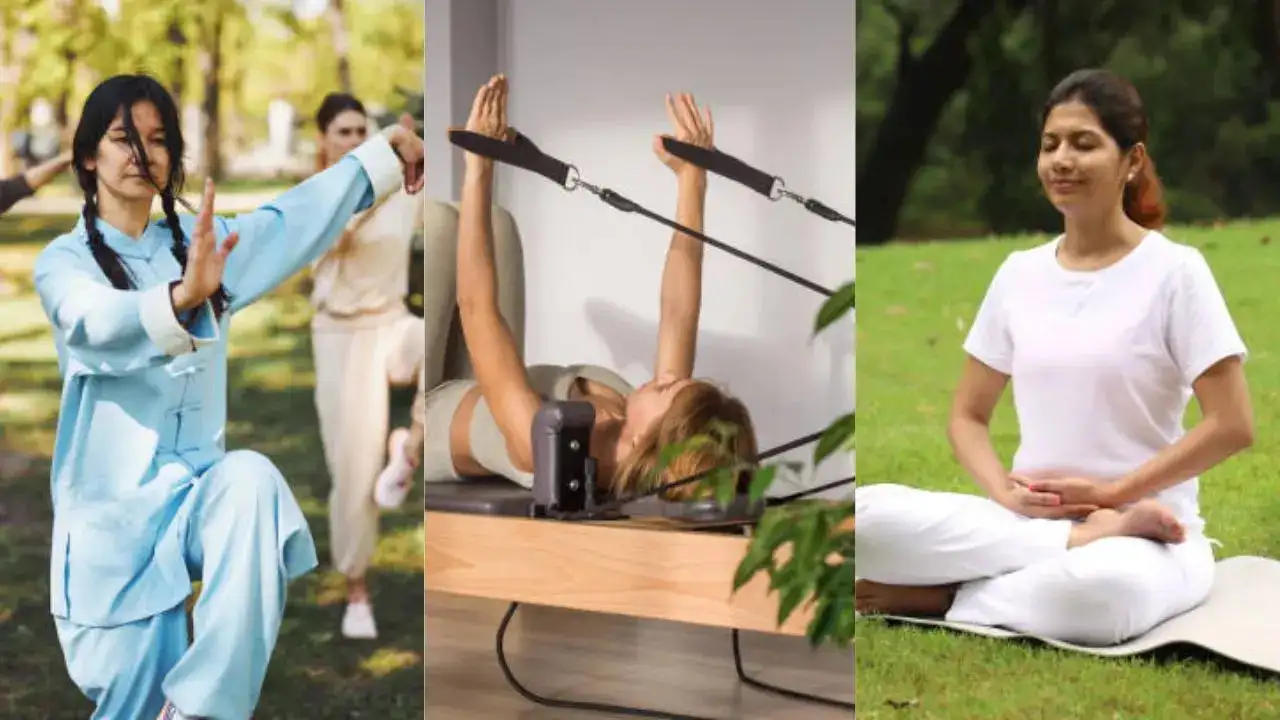
Tai Chi, Pilates Or Yoga: Which Is Best For Mental Clarity And Core Strength? (Image Credits: iStock)
Feeling mentally foggy, overwhelmed, or like your posture taking a hit from long hours at a desk? You’re not alone. As stress becomes part of our daily routine, more people are looking for ways to stay mentally sharp and physically strong — without hitting the gym for hours.
But worry no more! Three practices are gaining serious popularity for their ability to boost both mental clarity and core strength — Tai Chi, Pilates, and Yoga. But if you’re thinking about which one is best for you, the answer depends on your goals, preferences, and how you want to feel at the end of your workout.
Tai Chi
Tai Chi might look slow and relaxed, but don’t be fooled — this ancient Chinese martial art offers major mental health perks. Often described as “meditation in motion,” Tai Chi involves flowing movements, controlled breathing, and staying mentally present.
A 2018 review in Frontiers in Psychology found that practising Tai Chi can improve cognitive function and reduce symptoms of anxiety and depression, especially in older adults. It’s also great for balance and coordination.
“Tai Chi enhances mindfulness and reduces cognitive decline by promoting body awareness and present-moment focus,” explains Dr. Peter Wayne, a Harvard Medical School professor and author of The Harvard Medical School Guide to Tai Chi.
While it’s not as focused on building visible core muscles as Pilates, Tai Chi still works your deep stabilising muscles, especially the ones that help with posture and balance.
Pilates
If your main goal is to build a strong and toned core, Pilates is a great place to start. Created in the early 1900s by Joseph Pilates, this method focuses on slow, controlled movements that strengthen the muscles around your spine, abdomen, hips, and pelvis.
According to a 2021 study in Complementary Therapies in Medicine, people who practised Pilates saw significant improvements in core strength, balance, posture, and even anxiety levels.
“Pilates brings attention to breath and controlled movement, which helps with focus and emotional regulation,” says Brent Anderson, founder of Polestar Pilates.
Unlike Tai Chi, Pilates is less about meditation and more about physical control, though it still requires mental focus, especially to perform each move correctly. It's also highly adaptable, whether you're recovering from injury or looking for a more athletic challenge.
Yoga
Yoga is perhaps the most well-rounded of the three. With its roots in ancient Indian tradition, Yoga combines physical postures, breathwork, and meditation into one practice. Whether you prefer gentle Hatha or high-energy Power Yoga, there’s something for every fitness level.
A 2020 study in JAMA Psychiatry showed that Yoga, especially when combined with breathing and mindfulness, helped reduce symptoms of generalised anxiety disorder.
“Yoga is one of the most holistic wellness tools — it strengthens the body, calms the mind, and improves emotional balance,” says Dr Sat Bir Singh Khalsa, Assistant Professor of Medicine at Harvard Medical School.
Yoga postures like plank, boat pose, and downward dog work the core without feeling like a typical workout. Plus, regular Yoga practice can improve flexibility, sleep, and stress resilience.
What’s Right for You?
All three practices — Tai Chi, Pilates, and Yoga — offer a blend of physical and mental benefits. Here’s a quick takeaway:
Choose Tai Chi if you want gentle movements and better mental calmness.
And if you can’t decide? Mix and match! Even doing 15 minutes a day of any of these can make a noticeable difference in your mood, energy, and strength over time.
Get Latest News Live on Times Now along with Breaking News and Top Headlines from Health and around the world.
